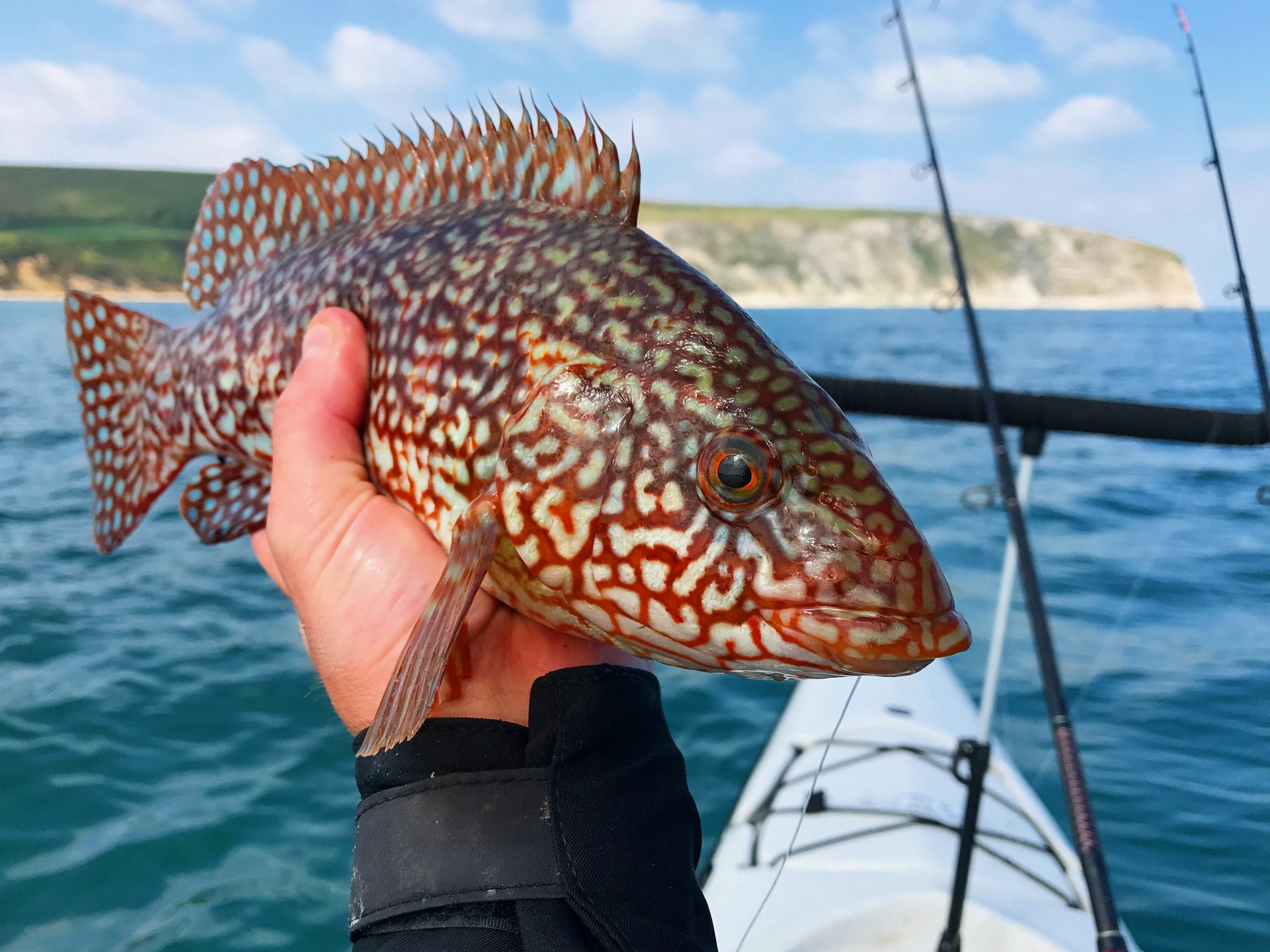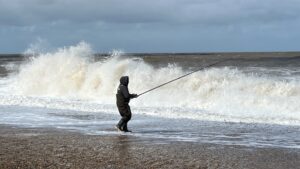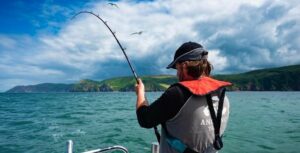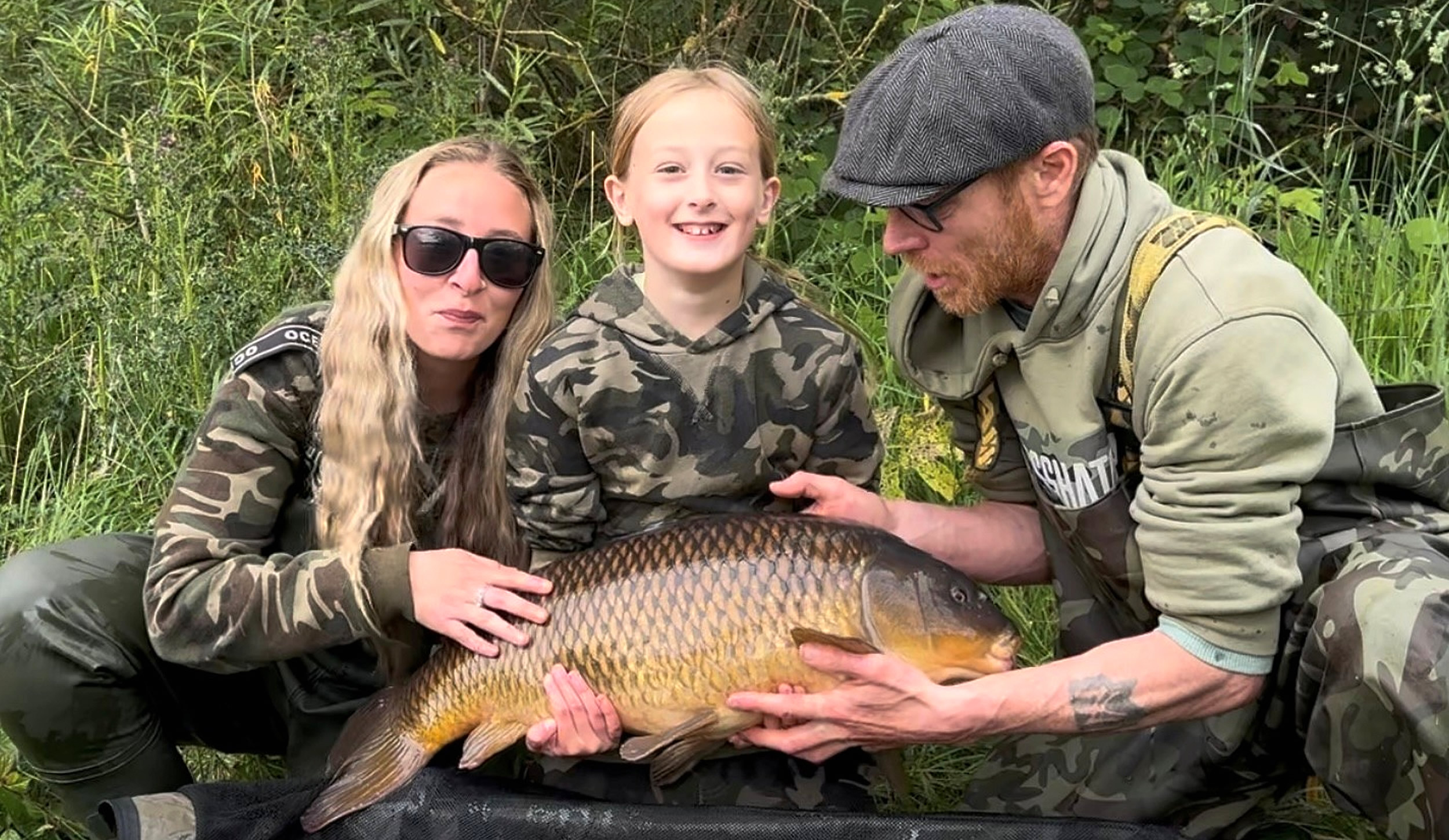
Beyond the Breakers
Joint Fisheries Statement: What Sea Anglers Need to Know
As sea anglers, we’re always thinking about the future of our fisheries. Ensuring our seas are full of healthy fish stocks is vital for our sport and the environment. One important step in achieving sustainable fisheries in the UK is the Joint Fisheries Statement (JFS), which lays out the government’s long-term plan for achieving the eight fisheries objectives in the Fisheries Act (2020).
In this blog post, we’ll break down the key points about the JFS, why it matters to you as a sea angler, and what the recent changes via the latest government consultation mean for the future of sea angling.

Recreational sea fishing is included in the ‘fishing industry’ definition under the Joint Fisheries Statement, which reads ‘the economic activity concerned with catching fish for food or sport.
What is the Joint Fisheries Statement?
The Joint Fisheries Statement (JFS) is a policy document that sets out the UK government’s approach to managing fisheries and safeguarding fish stocks. It aims to ensure sustainable fishing practices and protect marine ecosystems while supporting sectors that rely on the sea. Recreational sea fishing is included in the ‘fishing industry’ definition under the Joint Fisheries Statement, which reads ‘the economic activity concerned with catching fish for food or sport.’
The JFS involves several government bodies working together, including fisheries authorities in England, Scotland, Wales, and Northern Ireland. Its goal is to achieve sustainable fishing practices that will keep fish populations healthy for the long term, and it outlines the Fisheries Management Plans (FMPs) that will guide this process.
Fisheries Management Plans are the government’s new tool for managing specific fish stocks since the UK left the EU and the Common Fisheries Policy.

All anglers today want future generations of anglers to be able to enjoy the diversity of species we have fished historically. The Angling Trust is committed to protecting, promoting and developing angling in UK fisheries.
Why Does the Joint Fisheries Statement Matter for Sea Anglers?
For sea anglers, the JFS is important because policy, regulation and management resulting from it will directly impact the health and availability of fish in the waters where we fish.
The JFS lays out the government’s long-term plan for achieving the eight fisheries objectives in the Fisheries Act (2020). These eight objectives are: the sustainability objective, the precautionary objective, the ecosystem objective, the scientific evidence objective, the bycatch objective, the equal access objective, the national benefit objective, and the climate change objective.
One of the main tools used to achieve this is the Fisheries Management Plans (FMPs), which provide specific goals and actions to achieve environmental, social and economic sustainability. Recreational fishing is now a recognised stakeholder in UK fisheries and has a seat at the table on all Fisheries Management Plans. The Angling Trust is actively involved in the development and delivery of Fisheries Management Plans on behalf of recreational sea anglers.
All anglers today want future generations of anglers to be able to enjoy the diversity of species we have fished historically. The Angling Trust is committed to protecting, promoting and developing angling in UK fisheries.

The amendments to the Joint Fisheries Statement are warmly welcomed by the Angling Trust as part of our work in ensuring the government recognise the importance of recreational species to our sport and coastal communities
What Do These Changes Mean for Sea Angling?
In November 2024, the UK Government consulted on amendments to the Joint Fisheries Statement. The Angling Trust responded to the consultation and supporting the proposed changes.
- Extended Deadlines for FMPs: The government has extended the deadlines for some FMPs. While this might sound like a delay, it’s actually a good thing for anglers in the long run. It means that fisheries authorities will have more time to collect the best possible evidence and to engage with stakeholders (like anglers) to make sure the plans are as effective as possible. This could lead to better, more informed management strategies that benefit fish stocks and recreational angling.
- New Species Covered by FMPs: Some FMPs are being adjusted to include more species and regions. For example, starry smooth hound will be added to the Southern North Sea Non-Quota Species FMP, gilthead bream will be added to the Seabream FMP and cuckoo wrasse will be added to the Wrasse Complex FMP. This is a fantastic result for recreational angling and a result of the Angling Trust’s work in ensuring the government recognise the importance of recreational fisheries to our sport and coastal communities
As FMPs are rolled out and updated, we may see new regulations, voluntary guides, and monitoring come into play for recreational angling. Developing these collaboratively with the angling community is vital. The Angling Trust strongly recommends that anglers interested in getting involved take part in FMP engagement opportunities and make the most of the Angling Trust’s line into government as the recognised national governing body.

All anglers today want future generations of anglers to be able to enjoy the diversity of species we have fished historically. The Angling Trust is committed to protecting, promoting and developing angling in UK fisheries.
Stay Informed, Get Involved
The Joint Fisheries Statement and its accompanying Fisheries Management Plans are at the heart of ensuring that UK governments plan to deliver fisheries that can continue sustainably for future generations. While some of the changes, like extended deadlines and more consultations, may seem slow in the short term, they ultimately aim to provide the best possible management of our fisheries.
By staying informed and involved in the process, recreational sea anglers can play a key role in shaping the future of our seas. So, keep an eye on developments, engage with consultations, and most importantly, continue enjoying our beautiful, bountiful seas—now and in the future.
The Angling Trust remains committed to fighting for fish, fishing and the environment. We will always remain collaborative and constructively critical to ensure recreational angling get a good deal in UK fisheries.
Make sure you subscribe to our newsletter and join our Facebook group to be the first to know about the latest sea angling policy developments.
You might also like

SENSAS FUTURE NETWORKS DO THE DOUBLE DOUBLE IN YOUTH…

NATIONAL GLORY FOR RAMMY AT LINDHOLME

Three British record fish claims ratified

Making plans for kids and holiday activities? Fun, safe…

Get Fishing Fund – Funded Project: Fishing Opens New…

Climate change fuelling dangerous river pollution across England and…

NEW BLOG: The best thing about fishing – from…

Ethan gets his Gold Get Fishing Award – young…

Summer of Fishing 2025 is here – get into…

Get Fishing Awards were at Bristol Festival of Nature…

VIDEO: It’s not all about the fishing… Check out…

ENGLAND TAKE GOLD IN HOME NATIONS BOAT CHAMPS

SENSAS FUTURE NETWORKS DO THE DOUBLE DOUBLE IN YOUTH…

NATIONAL GLORY FOR RAMMY AT LINDHOLME

Three British record fish claims ratified

Making plans for kids and holiday activities? Fun, safe…

Get Fishing Fund – Funded Project: Fishing Opens New…

Climate change fuelling dangerous river pollution across England and…

NEW BLOG: The best thing about fishing – from…

Ethan gets his Gold Get Fishing Award – young…

Summer of Fishing 2025 is here – get into…

Get Fishing Awards were at Bristol Festival of Nature…

VIDEO: It’s not all about the fishing… Check out…

ENGLAND TAKE GOLD IN HOME NATIONS BOAT CHAMPS

SENSAS FUTURE NETWORKS DO THE DOUBLE DOUBLE IN YOUTH…

NATIONAL GLORY FOR RAMMY AT LINDHOLME

Three British record fish claims ratified

Making plans for kids and holiday activities? Fun, safe…

Get Fishing Fund – Funded Project: Fishing Opens New…

Climate change fuelling dangerous river pollution across England and…

NEW BLOG: The best thing about fishing – from…

Ethan gets his Gold Get Fishing Award – young…

Summer of Fishing 2025 is here – get into…

Get Fishing Awards were at Bristol Festival of Nature…

VIDEO: It’s not all about the fishing… Check out…









